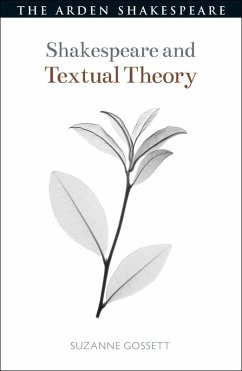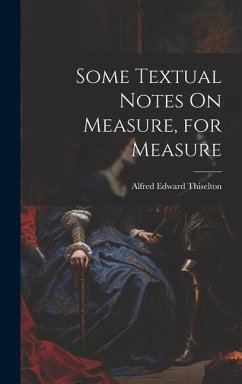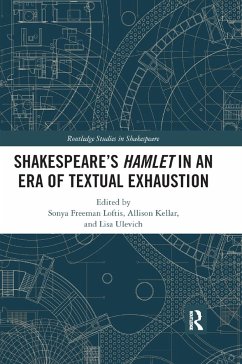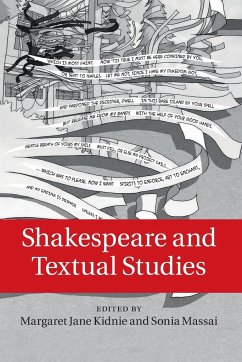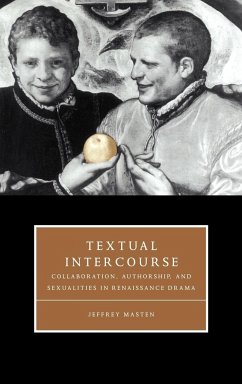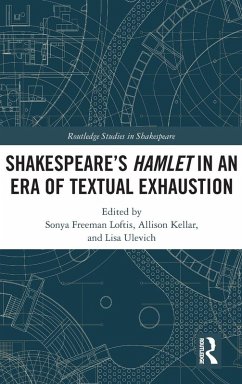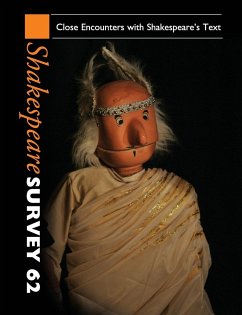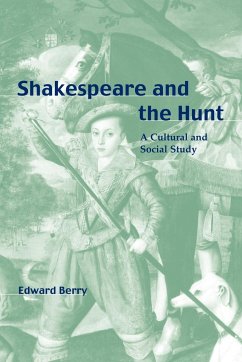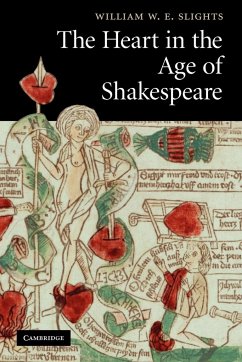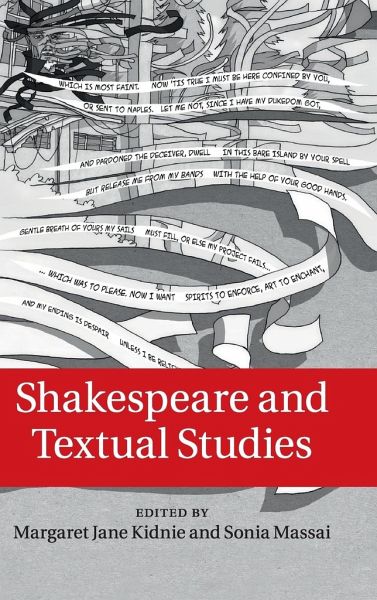
Shakespeare and Textual Studies
Versandkostenfrei!
Versandfertig in 1-2 Wochen
142,99 €
inkl. MwSt.
Weitere Ausgaben:

PAYBACK Punkte
71 °P sammeln!
Shakespeare and Textual Studies gathers contributions from the leading specialists in the fields of manuscript and textual studies, book history, editing, and digital humanities to provide a comprehensive reassessment of how manuscript, print and digital practices have shaped the body of works that we now call 'Shakespeare'. This cutting-edge collection identifies the legacies of previous theories and places special emphasis on the most recent developments in the editing of Shakespeare since the 'turn to materialism' in the late twentieth century. Providing a wide-ranging overview of current a...
Shakespeare and Textual Studies gathers contributions from the leading specialists in the fields of manuscript and textual studies, book history, editing, and digital humanities to provide a comprehensive reassessment of how manuscript, print and digital practices have shaped the body of works that we now call 'Shakespeare'. This cutting-edge collection identifies the legacies of previous theories and places special emphasis on the most recent developments in the editing of Shakespeare since the 'turn to materialism' in the late twentieth century. Providing a wide-ranging overview of current approaches and debates, the book explores Shakespeare's poems and plays in light of new evidence, engaging scholars, editors, and book historians in conversations about the recovery of early composition and publication, and the ongoing appropriation and transmission of Shakespeare's works through new technologies.





